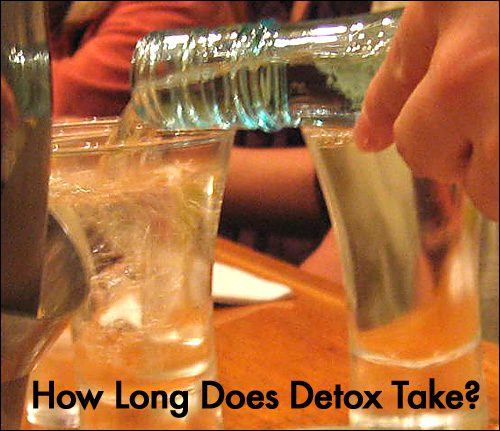Mention the word “detox” in conversation these days, and most everyone will assume you’re talking about a new fad diet, which likely involves some type of organic fruit and vegetable juices. However, for the 20 million people in the United States who struggle with addiction to drugs and alcohol, the word “detox” carries a much more serious meaning.

Detoxification is the removal of toxic substances from a living organism, such as a human being that’s battled with long-term or short-term substance abuse issues.
For many, the dread of experiencing painful withdrawal symptoms, which can arise during detox, is enough to keep them locked in a cycle of addiction. This very real and intense anxiety means they don’t seek the treatment they desperately need.
Nearly all addictive drugs, including alcohol and marijuana, disrupt the brain’s communication system and chemical balance. Dopamine is a neurotransmitter. It’s present in areas of the brain that regulate emotion, motivation, movement, and feelings of pleasure. Using drugs and alcohol activates these neurotransmitters, flooding a person’s brain and giving them a sense of euphoria when they’re “high.”
The brain naturally defends itself by decreasing the number of available dopamine receptors, which creates a tolerance. This is why anyone struggling with substance abuse must consume more and more to achieve the same effects. Physical and mental withdrawal begins when the brain and body are suddenly deprived of these substances.
Painful Symptoms of Withdrawal from Drugs and Alcohol Include:
- Nausea and vomiting
- Confusion, paranoia and intense worry
- Drenching sweats
- Severe trembling
- Seizures
- Death
Make no mistake, detoxing from drugs and alcohol can be fatal. In the case of those with a history of alcoholism, delirium tremens (DTS) is a major concern. Left untreated, DTs can cause extreme physical agitation, hallucinations, seizures, and death. While detoxing from heroin and other opiates, such as prescription painkillers, isn’t as lethal, it is still extremely uncomfortable and painful.
As terrifying a prospect as detox can be, it is also the first step towards treatment and ultimate recovery from addiction. Not every individual will experience debilitating withdrawal symptoms, especially if they seek treatment in a facility equipped to treat their medical needs.
What is the Timeframe for Substance Abuse Detoxification?
The time that each individual needs to detox thoroughly vary, but what follows is a general guideline.
- Alcohol Detoxification: 3 to 5 days, but can be as much as a week or more if a person has developed DTs
- Opioid Detox, such as hydrocodone or oxycodone: 7 days
- Detox From Heroin: 7 days
- Methadone: 2 weeks
- Suboxone: 4 weeks
Because withdrawal and detox are potentially dangerous, going “cold-turkey” or suffering through symptoms at home alone is not only unwise but also usually unsuccessful. The intense physical cravings combined with the psychological stress of “kicking” an addiction is powerful enough to drive even the strongest individual back to alcohol and drugs.
Statistics have shown that detoxing in a facility qualified to handle these serious issues and then receiving treatment for addiction gives a person a greater chance at overall recovery. The fear of detoxing should no longer chain a person to their addiction. Treated properly, anyone addicted to drugs and alcohol can break free of their physical dependence and get down to the business of living a happy, healthy and sober lifestyle.
Related:
7 Things You Might Not Know About Delirium Tremens
What Role Does Dopamine Play in Addiction?





